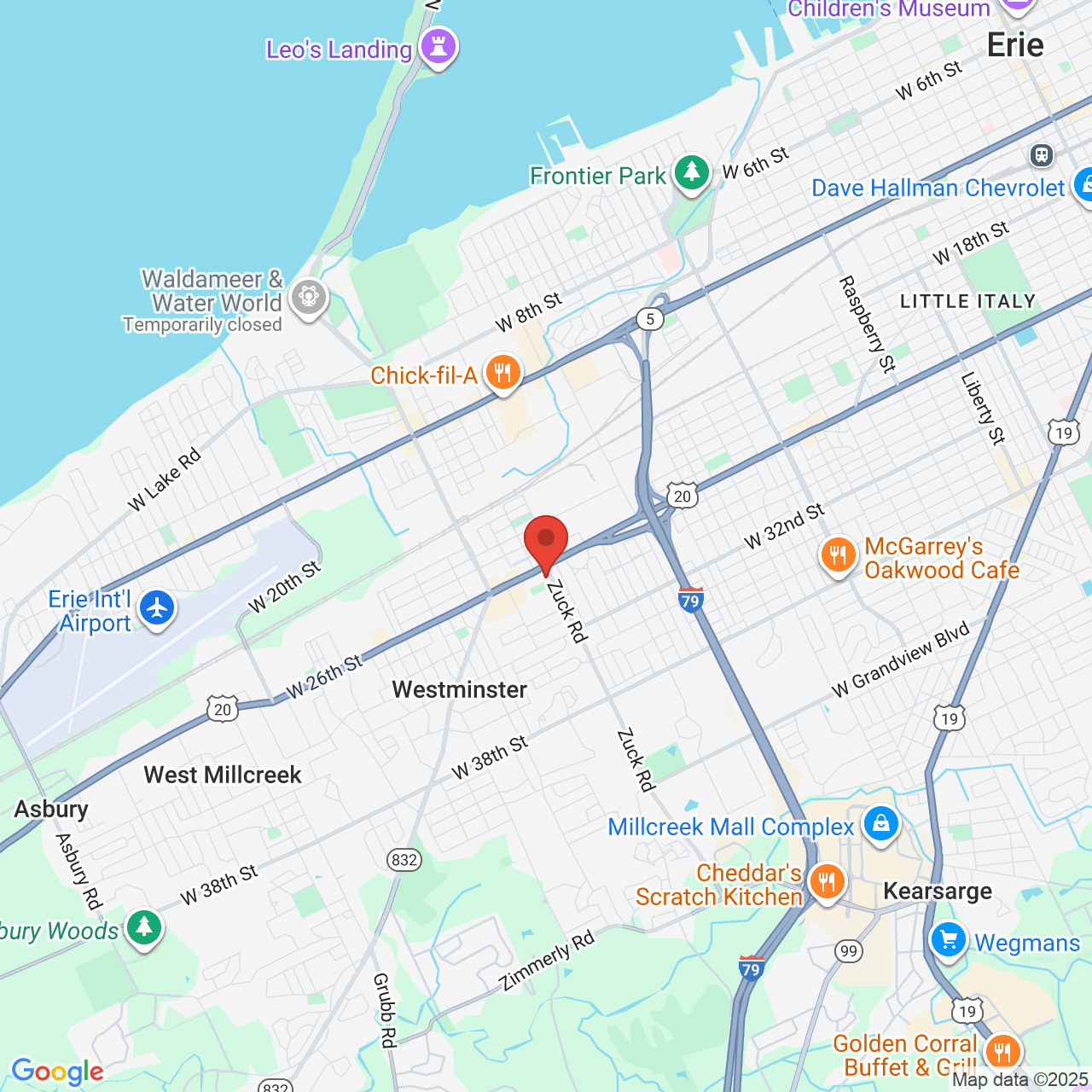
Cataracts
Is your vision cloudy? Does it become blurrier at night? Your vision may be compromised due to cataracts.
At Contemporary Ophthalmology of Erie in Erie, PA, we offer state-of-the-art treatment for cataracts.
Read on to learn more about cataracts and why millions of people undergo cataract surgery each year...
What Are Cataracts?
A cataract is a clouding of the eye's lens. The condition causes blurry vision, dulling your ability to see bright colors and decreasing your ability to see well at night.
Although glasses and contacts can offset the effects to some degree, the only way to treat cataracts is through surgery. Using advanced technology, Drs. Howard M. Levin, Vincent M. Imbrogno, Ravinder Sabherwal and Emily Washek can remove the compromised, clouded lens and replace it with an artificial intraocular lens (IOL) that will restore your ability to see clearly and crisply.
Do I Need Cataract Surgery?
Cataracts cause your eyes' lenses to become cloudy, causing blurry vision, glares, and other uncomfortable symptoms.
You may be a candidate for cataract surgery with Contemporary Ophthalmology of Erie in Erie, PA, if you experience difficulty performing the following tasks:
- Reading
- Watching TV
- Driving at night
- Seeing in the dark
The symptoms of cataracts can make it dangerous for you to go out at night or drive in the dark, which can make you feel less independent. Seeking treatment for cataracts is essential to maintaining a confident, active lifestyle.
Imagine seeing clearly again...

Treat Cataracts & Restore Your Vision Today Contact Contemporary Ophthalmology of Erie
If you are experiencing cloudy vision, glares around bright lights, and difficulty seeing at night, contact Contemporary Ophthalmology of Erie to find out if you have cataracts and talk to us about your treatment options.
To schedule an appointment at our Erie, PA, practice, send us a message or call us:
(814) 838-9555
Learn Why Patients Love Us Read Our 5-Star Reviews
Dr Levin is a wonderful ophthalmologist and has taken great care of me for over 5 years. He did my LASIK procedure that significantly improved my quality of life.
View on GoogleVery friendly staff, treat patients with the utmost care and kindness.
View on GoogleTypes of IOLs Offered at Our Practice
Premium IOLs
Premium IOLs are designed to help you achieve clear vision at every distance without glasses or contacts. Our premium IOL options include PanOptix®, PanOptix® toric and Vivity lenses.
Standard IOLs
Standard IOLs are monofocal, so they are designed to help you see clearly at a single distance, near or far. For patients who prefer standard IOLs, we use lenses from trusted brands like Alcon Johnson & Johnson.
How Much Does Cataract Surgery Cost?
Premium cataract surgery at our Erie, PA, practice usually costs $1,200 to $2,000 per eye.
Cataract surgery is usually partially covered by insurance. Our office accepts many types of plans. If you are a member of an eligible insurance program, our team can file forms on your behalf.
If you do not have insurance or have additional costs that are not covered by your insurance, we also accept credit cards.
Lens Removal Is a Straightforward Process

What to Expect after Cataract Surgery
Immediately after cataract surgery, your vision will be blurry for a few days as your eye heals. However, your vision should begin improving after this time.
While you are recovering, it is normal to experience mild itching or discomfort, but these side effects should gradually get better as time goes on. Our doctors may also prescribe medication to prevent infection.
A day or two after your surgery, you will come back to our practice so that one of our doctors can monitor your healing.
More 5-Star Reviews
These folks are amazing! Dr. Imbragno did an awesome job!!!
View on GoogleAfter living in 6 states and 4 countries I can say this is the best place I've ever gone for eye care...
View on GoogleFAQs about Cataracts
Is cataract surgery safe?
Cataract surgery is considered a very safe procedure. It is also very common. According to a study by the Community Eye Health Journal, approximately 10 million cataract surgeries are performed worldwide each year.
When should you have cataracts removed?
If your symptoms are so bad that they are preventing you from performing your normal activities, it's probably time to discuss cataract surgery with the doctors at Contemporary Ophthalmology of Erie.
Does cataract surgery give you 20/20 vision?
With the right IOL, you may be able to achieve 20/20 vision. If you opt for a standard lens instead of a premium lens, it is more likely that you will still need to wear glasses after your surgery.
How long does it take to recover from cataract surgery?
Your vision will begin improving a few days after cataract surgery, but most patients are fully healed within eight weeks.
How painful is cataract surgery?
Cataract surgery is not painful. Our doctors will numb your eye so that you do not feel any discomfort during your surgery, and we can prescribe medication to reduce discomfort while you heal.
Am I at risk for cataracts?
Age is the greatest risk factor for cataracts, but other health conditions and lifestyle factors can increase your risk of developing cataracts. Diabetes is one condition that has been linked to cataracts. In a study conducted by the Centers for Disease Control and Prevention, 32.2 percent of adults with diagnosed diabetes who were over the age of 45 had cataracts.
How can I prevent cataracts?
There is no proven way to prevent cataracts. However, certain lifestyle factors like smoking, excessive sun exposure, and alcohol use can increase the risk of cataracts. To reduce the risk of cataracts, you can quit smoking, wear sunglasses whenever you're outdoors, and reduce your alcohol intake. When choosing sunglasses, make sure you always choose sunglasses with proper UV protection.


